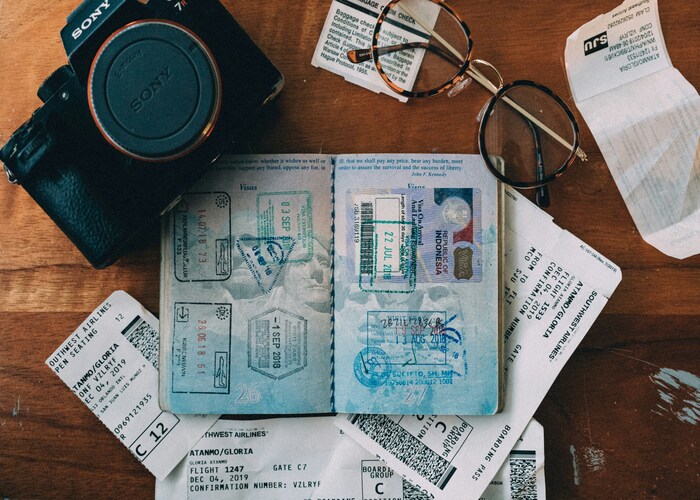Planning a trip takes time, effort, and often a good amount of money. From booking flights to reserving hotels, every traveler wants a smooth experience. But sometimes, unexpected situations — like illness, bad weather, or sudden changes in plans — can force you to cancel your trip. Travel Cancellation Refund Policies Explained: A Complete Guide.
When that happens, understanding travel cancellation refund policies becomes essential. Knowing your refund rights and options can help you recover some or all of your money — and save you from added stress.
This detailed guide explains what travel cancellation refund policies are, how they work, what to look for before booking, and how to get your refund smoothly.
What Are Travel Cancellation Refund Policies?
A travel cancellation refund policy outlines the terms and conditions under which travelers can cancel a booking and receive a refund.
It applies to a range of travel services, such as:
- Flights
- Hotels and accommodations
- Vacation packages
- Cruises
- Car rentals
- Tours and activities
Every travel provider — whether it’s an airline, hotel, or online booking platform — has its own policy. Some offer full refunds for cancellations made in advance, while others impose partial refunds or non-refundable terms.
Understanding these policies before you book can help you make smarter, risk-free travel decisions.
Why Travel Cancellation Policies Matter
In today’s world, travel plans can change for countless reasons — personal emergencies, natural disasters, or even sudden global events.
Here’s why refund policies matter for every traveler:
- Financial protection: You can recover your money if your trip gets canceled.
- Flexibility: Many policies allow rescheduling or partial refunds.
- Peace of mind: You can plan confidently without worrying about unexpected losses.
- Transparency: You know exactly what you’re agreeing to before you confirm a booking.
Simply put, understanding refund policies helps you stay in control of your travel plans and finances.
Types of Travel Cancellation Refund Policies
Different travel providers use different refund structures. Here are the most common types:
1. Fully Refundable Policies
These allow you to cancel your booking and receive a full refund, often if canceled within a specific time frame.
Example: Canceling a hotel stay 48 hours before check-in may result in a full refund.
2. Partially Refundable Policies
These provide a refund, but with a deduction — usually a service or cancellation fee.
Example: Canceling a flight might give you a refund minus an administrative charge.
3. Non-Refundable Policies
Cheaper fares or discount offers often come with a “non-refundable” tag. Once booked, you lose the payment if you cancel.
However, some providers allow date changes for a fee.
4. Flexible or Semi-Flexible Policies
These are a middle ground between refundable and non-refundable plans. They often allow one free change or partial refund depending on timing.
5. Force Majeure Cancellations
In rare cases like natural disasters, airline strikes, or government restrictions, travel providers may issue full refunds even for non-refundable bookings.
How Flight Cancellation Refunds Work
Airline refund policies vary, but most depend on the type of ticket you purchase.
- Refundable tickets: You’ll receive your money back if you cancel before departure.
- Non-refundable tickets: You may not get a full refund, but airlines often offer travel credits or rescheduling options.
- Flight cancellations by airlines: If the airline cancels the flight, passengers are usually entitled to a full refund or rebooking at no extra cost.
Always check your fare conditions before confirming payment — small details can make a big difference. Travel Cancellation Refund Policies Explained: A Complete Guide.
Hotel Cancellation Refund Policies
Hotels often have more flexible refund options than airlines. Typical structures include:
- Free cancellation period: Many hotels allow cancellation up to 24–72 hours before check-in with a full refund.
- Late cancellation fees: If you cancel close to your check-in date, a night’s stay may be deducted as a penalty.
- Non-refundable rates: Discounted rates are often non-refundable, even if canceled weeks in advance.
When booking, always read the “Cancellation Policy” section carefully — it determines how much you’ll get back if plans change.
Cruise and Tour Refund Policies
Cruise and tour operators usually have more specific refund timelines because they plan logistics in advance.
- Early cancellations: Usually offer higher refunds if canceled weeks or months before departure.
- Late cancellations: May only return a small percentage of the fare.
- No-shows: Typically non-refundable.
To avoid heavy losses, it’s best to book tours or cruises with flexible or refundable policies, especially for long or international trips.
Factors That Affect Refund Eligibility
Several factors determine how much of your money you can recover when canceling:
- Timing of cancellation: The earlier you cancel, the better your chances of a full refund.
- Type of ticket or booking: Refundable fares have better protection.
- Payment method: Some credit cards offer built-in travel protection.
- Reason for cancellation: Medical emergencies or official travel advisories may qualify for exceptions.
- Provider’s terms and conditions: Always check refund windows and penalties. Travel Cancellation Refund Policies Explained: A Complete Guide.
How to Request a Travel Refund
Requesting a refund is usually a straightforward process if you follow the right steps:
- Check your booking details for cancellation terms and deadlines.
- Cancel your reservation through the same platform or provider you booked from.
- Contact customer service if you’re unsure about your refund options.
- Provide supporting documents if your cancellation is due to medical or emergency reasons.
- Track the refund timeline — most refunds take between 5–30 business days to process.
Being proactive and keeping records helps speed up the process.
Refund vs. Travel Credit
Sometimes, instead of a cash refund, travel providers offer credits or vouchers for future travel.
Here’s the difference:
| Type | What You Get | Expiry | Flexibility |
|---|---|---|---|
| Refund | Money returned to your original payment method | No expiry | Use freely |
| Credit/Voucher | Travel credit for future use | Often valid 6–24 months | Use with the same provider |
Credits are useful if you plan to travel again soon, but if you prefer flexibility, a full refund is usually better.
How Travel Insurance Can Help
Travel insurance with trip cancellation coverage can help you recover prepaid, non-refundable costs if you cancel for covered reasons such as:
- Illness or injury before the trip
- Death or illness in the family
- Severe weather or natural disasters
- Airline bankruptcy or strikes
- Unexpected work obligations
This coverage ensures that even if your booking is non-refundable, you still receive compensation for your losses.
However, not all reasons are covered, so always review your policy carefully before buying.
Common Mistakes Travelers Make
Many travelers lose money because they overlook small but important details. Here are common mistakes to avoid:
- Booking non-refundable fares without checking your schedule.
- Ignoring cancellation deadlines.
- Assuming every reason qualifies for a refund.
- Not reading the fine print before confirming payment.
- Forgetting to document your communication with providers.
By avoiding these errors, you increase your chances of getting a fair refund smoothly.
Tips to Protect Your Travel Investment
- Book refundable rates when possible. They cost a little more but offer peace of mind.
- Read cancellation policies carefully. Never skip the terms and conditions.
- Use credit cards with travel protection benefits. Many premium cards cover cancellations.
- Buy travel insurance. It adds another layer of protection for emergencies.
- Keep digital copies of receipts and booking confirmations. These are essential for refund claims.
- Stay updated with airline or hotel alerts. Sometimes refund policies change during major disruptions.
These small steps can save you hundreds or even thousands of dollars in case plans don’t go as expected.
Understanding Refund Timelines
Refund processing times depend on the provider and payment method. Here’s what to expect:
- Airlines: 7–30 business days for card refunds.
- Hotels: 3–14 days for refund confirmation.
- Online booking sites: May take up to 30 days, depending on their coordination with hotels or airlines.
If the refund takes longer, contact customer support with your booking reference number.
When Are Refunds Not Possible?
Refunds might be denied if:
- The booking was explicitly non-refundable.
- The cancellation was made after the eligible period.
- You canceled for personal reasons not covered by policy.
- Documentation wasn’t provided for emergency cancellations.
Always keep clear communication records and check your provider’s terms to understand when refunds apply.
High-Search FAQs About Travel Cancellation Refund Policies
1. What is a travel cancellation refund policy?
It defines when and how travelers can cancel bookings and receive a refund for flights, hotels, or tours.
2. Are airline tickets refundable?
Only refundable or flexible tickets are fully refundable. Non-refundable ones may offer credits or partial refunds.
3. Can I get a hotel refund after check-in?
Most hotels do not refund after check-in, unless there are exceptional circumstances.
4. How long do travel refunds take?
Refunds typically take between 5 and 30 business days, depending on the provider.
5. What if I cancel due to illness?
Some providers refund with medical proof, while others may require travel insurance coverage.
6. What are non-refundable tickets?
Tickets sold at discounted rates that cannot be refunded after booking, though rescheduling may be possible.
7. Is it better to take credit or refund?
Credits are convenient for future travel, but a full refund offers more flexibility and no expiry.
8. Can I get a refund if the airline cancels my flight?
Yes. If the airline cancels, you’re generally entitled to a full refund or free rebooking.
Final Thoughts
Cancellations are part of modern travel — but losing your money doesn’t have to be. By understanding travel cancellation refund policies, you can protect your finances, make informed booking choices, and reduce stress if plans change.
Before confirming any travel reservation, take a few extra minutes to review the refund terms. A little awareness today can save a lot of trouble later.
Whether you’re booking a weekend getaway or a long international journey, knowing your cancellation rights gives you confidence to travel smarter and safer.






Leave a Reply